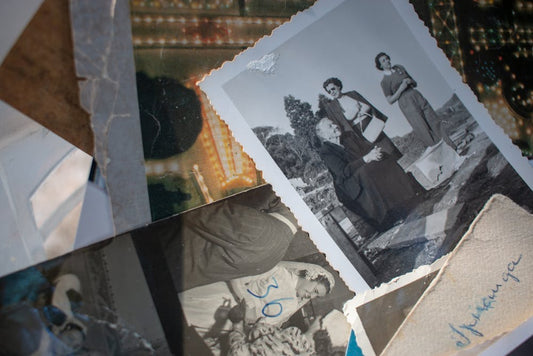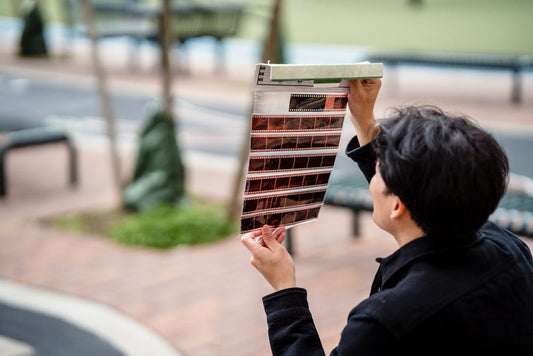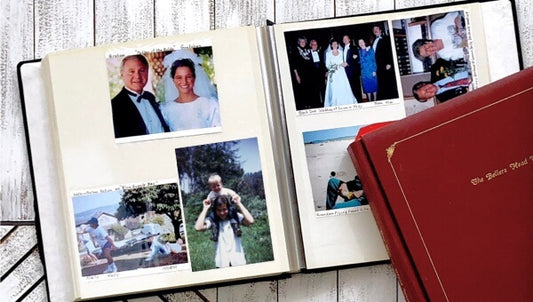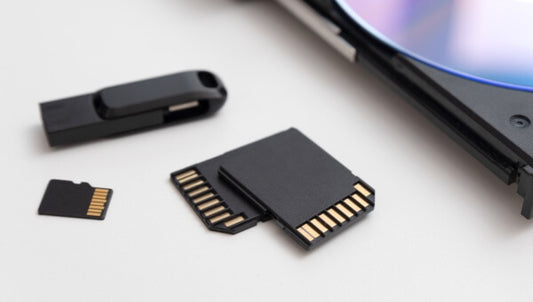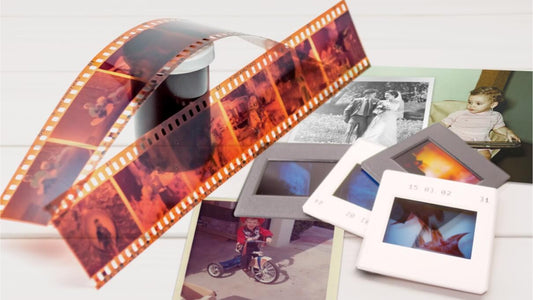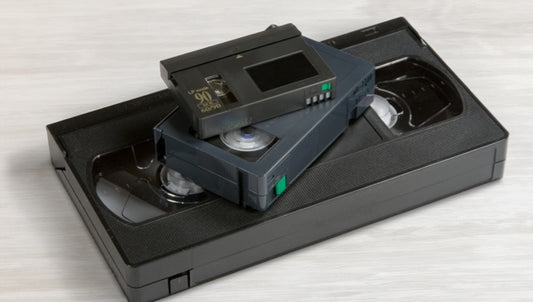Preserving old photos is important for keeping your memories safe. But what is the best way to digitize old photos? Should you scan or take a picture? Both options help convert your physical photos into digital files. Your choice depends on the tools available and how you plan to use the digital images. Understanding the strengths of each method can help you decide which is right for you. Capture will help you explore the best ways to save and protect your treasured photos!
Jump to:
Comparing Scanning and Photographing Photos
When deciding how to digitize old photos, you have two main options: photo scanning vs photography. Both methods help safeguard memories by converting paper prints into digital files, but they work differently. Scanning relies on specialized hardware—namely a scanner—that illuminates the photo evenly and reads each section in fine detail. Because of this precision, scanning is often the first choice for those who want the highest quality output, particularly if the photos are historically significant or hold deep sentimental value.
On the other hand, photographing photos means using a camera or smartphone to take a picture of old photos. This approach is faster and more flexible than scanning. You don’t necessarily need special hardware—only a device capable of taking pictures and a well-lit environment. Modern smartphones feature high-resolution lenses that can do an impressive job of rendering detail. Additionally, photographing becomes a practical solution when dealing with oversized or bulky items like framed pictures, thick albums, or scrapbook pages that don’t fit inside a flatbed scanner.

Advantages of Photo Scanning
The best way to scan photos is by using high-quality scanners that provide detailed capture, automatic color correction, and consistent results. Scanners preserve even the smallest details, such as fine lines and subtle textures, ensuring accuracy. They automatically restore faded or discolored photos to their original appearance, making them ideal for achieving high-quality results. This method is especially beneficial for large collections, offering consistent and uniform outcomes.
Scanners are also great at reducing glare and distortions. Unlike cameras, they provide even lighting that prevents reflections from ruining the image. This makes them ideal for valuable or fragile photos, such as historical pictures, polaroid pictures or delicate prints, that need extra care during digitization.
When Taking a Picture is Better
Despite the high quality that scanning offers, there are many situations where taking a picture of old photos is more practical. If you don’t own a scanner and don’t wish to purchase one or visit a shop that offers scanning services, you can still create digital copies with a camera or smartphone. This is a popular option for quick tasks such as sharing images online or saving them in a personal folder for easy access. With just a little effort to find consistent, soft lighting and a stable surface, you can achieve excellent results, especially with newer phone cameras that rival some dedicated cameras in resolution.
Another scenario that calls for photographing is when photos are trapped in hard-to-scan formats. Large albums don’t always open fully for a scanner, while scrapbook pages often have bulky decorations that prevent them from lying flat. Framed pictures, especially those behind glass, can be a real challenge to remove without risking damage. Rather than forcing these items to fit in a scanner, taking a photo allows you to capture them in their current form without dismantling delicate displays. You can also adjust your shooting angle, move around light sources to reduce reflections, and employ easy-to-use editing apps afterward to sharpen or brighten the image.

Choosing the Right Photo Scanning Service
While scanning photos at home is an option, working with a professional service is often the best choice—especially for delicate or valuable prints that need special care. Reliable photo scanning services use high-resolution commercial scanners designed to capture even the smallest details. These services often include features like color correction and restoration to address issues such as discoloration, fading, or tears.
When selecting a provider, it’s essential to check whether they have experience handling vintage or fragile photos. Look for companies that prioritize preserving your originals and ensure your precious collection is returned in the same condition it was sent. The goal is not only to digitize but also to safeguard the integrity of your cherished memories.
Exploring Photo Digitization with Capture
If you’re looking for a complete solution, our photo digitization services encompass every step needed to produce well-preserved digital copies of your photos. Rather than worrying about doing it yourself or mastering photographic techniques, you can rely on professionals who understand exactly how to optimize lighting, handle various print types, and ensure your images emerge both clear and true to life. The transformation can be especially rewarding for older pictures that have yellowed or lost contrast due to age, as careful digitization can restore much of their original color balance.
Working with a dedicated service also frees you from the labor of preparing each photo. You don’t have to juggle a camera, set up a tripod, or worry about dust and smudges. Although scanning and photography might sound straightforward, sometimes the smallest details can make a significant difference in results—shadows that subtly alter color, fingerprints that leave marks on the scanned area, or misaligned photographs that look warped. By choosing a service designed for this task, you’re letting someone experienced remove those hassles and deliver consistently polished files.

DIY Photo Digitization Tips
Although professional services have their advantages, many people do opt to digitize photos at home for convenience or personal enjoyment. If you choose this path, a little bit of preparation goes a long way. Start by cleaning each photo gently with a soft microfiber cloth, making sure to remove dust and smudges that could cause blurry or spotted images. If you’re using a flatbed scanner, ensure your scanner bed is similarly wiped down—sometimes a stray hair or speck of dust can appear in all your scans without you realizing.
If you’re photographing the photos instead, pay close attention to your lighting conditions. Avoid direct sunlight, which can cause harsh shadows or glare, and try using a consistent, diffused light source that illuminates the photo evenly. A table lamp or adjustable light can often help you control the angle and intensity of the beam. Once you’ve captured your images, you can edit them on your computer or smartphone using free tools to adjust brightness, contrast, and color balance. Labeling each digital file with a descriptive name—perhaps including the date, location, or subject—makes it easier to find specific images later. Storing them in clearly named folders, or even utilizing cloud backups, adds extra layers of security.
Which Method Is Best for You?
Ultimately, deciding whether to scan or take a picture of your old photos depends on your goals, resources, and the nature of your collection. If you prioritize high resolution and have delicate images, scanning preserves every detail and keeps your memories vivid. However, if you value speed and flexibility, or your photos are too large for a scanner, taking a picture with a camera or smartphone offers a convenient alternative. Both methods protect your memories from fading or damage by converting physical prints into easily shared digital files. By organizing these digital images into labeled folders, you can transform an overwhelming stack into a well-curated collection accessible for generations. Whether you choose to scan or take a picture, digitizing your photos is a valuable investment in safeguarding your past, allowing cherished moments like your grandparents’ wedding or your own childhood snapshots to live on and be enjoyed by future family members.


